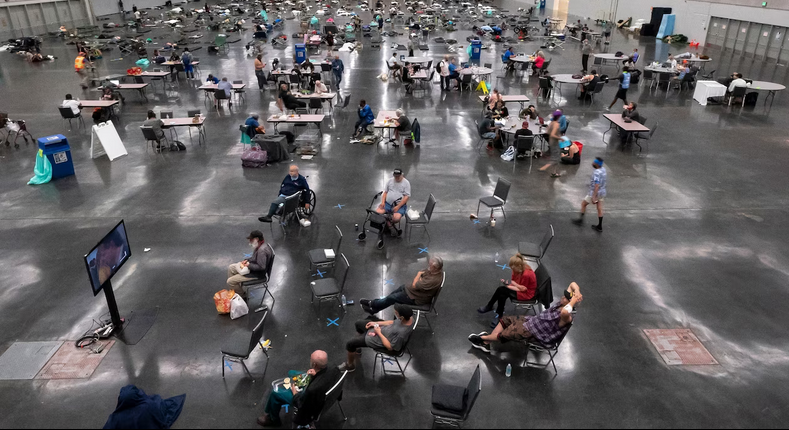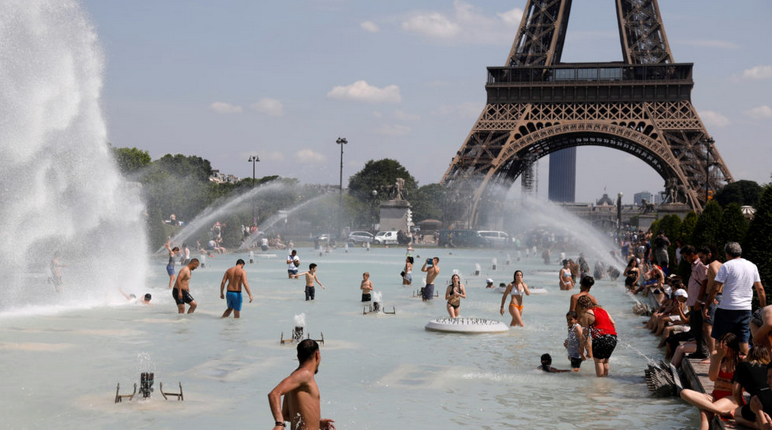 By Pepper Parr
By Pepper Parr
July 6th, 2023
BURLINGTON, ON
“When heat comes, it’s invisible,” opens Jeff Goodell’s new book, The Heat Will Kill You First. The veteran journalist and Rolling Stone correspondent makes a searing case that most of us think about extreme heat all wrong, and to disastrous effect. Like his previous book, The Water Will Come, this one is essential reading for climate journalists everywhere.
Did you know, for example, that heat already kills nearly twice as many people a year as guns? And that death toll is bound to increase as global temperatures continue their inexorable rise. Monday, July 3, was the hottest day on Earth since humans began measuring temperatures — that is, until Tuesday, July 4, replaced it in the record books.
Reams of climate science reports have warned that if global temperatures rise by 2 degrees Celsius — 3.6 degrees Fahrenheit — then ice sheets will collapse, droughts will kill crops, and famine will follow. “But to nonscientists — which is to say, most humans on the planet — 3.6 degrees [F] of warming does not sound dangerous at all,” Goodell writes. “Who can tell the difference between a 77-degree day and an 81-degree day?” Therein lies the central challenge to journalists: How to not let the smallness of numbers like “3.6 degrees” belie their immense danger.

Portland Oregon has opened up large cooled spaces where people can sit at table and do some work or relax in comfortable chairs
“The kind of heat I’m talking about here is not an incremental bump on the thermometer,” he adds. “It is heat as an active force, one that can bend railroad tracks and kill you before you even understand that your life is at risk.”
News coverage has a track record of under-reporting heatwave deaths. Death certificates tend not to name “extreme heat” as a cause of death; only later do epidemiological studies make an accurate count overflowed; bodies were stacked in the street. Initial reports put the death toll at 15,000, a figure journalists repeated for years.
But statisticians later concluded that, in fact, more than 70,000 people had died. (In one of the first climate attribution studies, researchers found that climate change had doubled the likelihood of such an extreme heatwave.)

Water is being sprayed into the streets beside the Eiffel Tower in France creating a huge wading for people to cool off in.
The Heat Will Kill You First has gotten rave reviews, and it offers many lessons for journalists covering not only this year’s heatwaves but the evergreen news that global temperatures will continue to rise as long as humanity burns fossil fuels.
One key point: Heat is a climate justice story. “If you’re poor,” writes Goodell, “you swelter in an uninsulated apartment or trailer with no air-conditioning or an old, inefficient machine that you can’t afford to run. You can’t move somewhere cooler because you’re afraid of losing your job and you don’t have the savings to start over.”
Responding to the news that July 3 was (at least until the following day) the hottest day ever recorded, climate attribution scientist Dr. Friederike Otto declared: “This is not a milestone we should be celebrating… It’s a death sentence for people and ecosystems everywhere.” It’s up to journalists to make those stakes clear.














